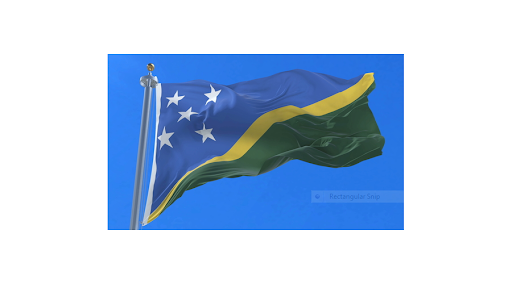Today, I have been thinking more of national unity as a concern in the Solomon Islands than I have about the intrusion and spread of the coronavirus pandemic, as troubling as it is, but it will go away with time and the following of a vaccination programme, not hitherto heeded, and by sticking to health and safety instructions of the MHMS and the government.
As a reference point to national unity I turned to the example of Nigeria which has many hundreds of different tribes, cultures, languages and huge development and infrastructure gaps but is seen as a united nation with a vast population on the African continent.
From my own experience of service in Africa, although not in Nigeria, the first moves to promoting national unity occurred in opposition to Colonial rule and later followed by mixed marriages that cut across different ethnic groups. When that happened the basic foundation of the society was open to becoming a multi-ethnic state and it no longer seemed necessary to saying I’m Igbo, or Yoruba, but first a Nigerian.
All this is by the way as looking at the issues of unity in the Solomon Islands and the changes that prompted the first moves too national unity in Nigeria hardly apply at home,
The country has long since moved on from its Colonial past and mixed tribal marriages have prompted land ownership and rights concerns over time but not to the extent of greatly having much sway on unity.
I see the bigger problem of unity today being tied up in ancestral ties to land, natural resources, cultural, livelihoods and unequal development, unequal infrastructure, limited basic services and the sharing of resources.
Whether it is precisely true or not, I will mention customary ownership of land and the extent the government recognizes as formally or legally belonging to the indigenous people of a particular province in the Solomon Islands, said to be at odds with the central government.
Insecure land tenure is a driver of conflict, environmental degradation, and weak economic and social development. This threatens cultural survival and vital knowledge systems – both of which contribute to ecological integrity, biodiversity and environmental health upon which all depend.
Improving security of land tenure, strengthening governance, promoting public investments in quality and culturally appropriate service provision, and supporting resilience and livelihoods are critical to reducing the multidimensional aspects of poverty while contributing to the Sustainable Development Goals (SDGs).
If what I have touched upon remains core issues for joint discussions and resolution between parties still seen to be apart in the Solomon islands, I can only hope resolution to the concerns will soon be found.
Yours sincerely
Frank Short



